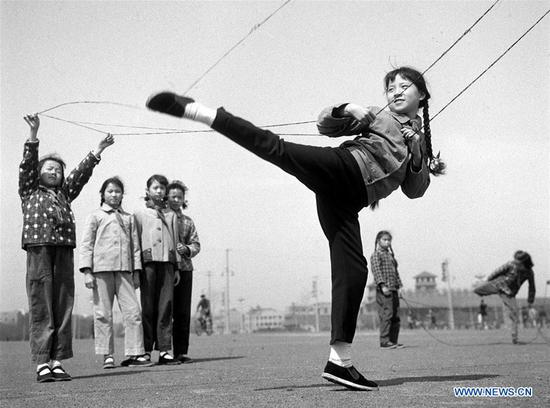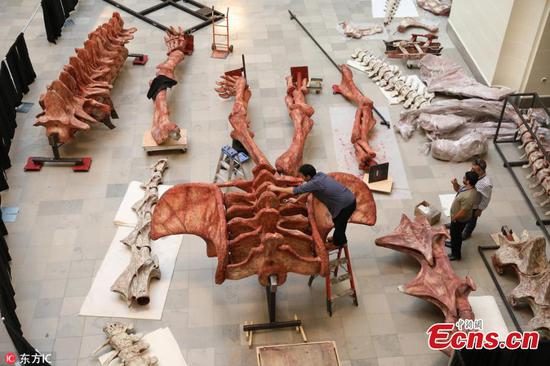
A student from Italy practices kneading dough at the Xinglong Beef Noodle Vocational School in Lanzhou, Gansu province. (Photo: Xinhua/Wang Peng)
This global outlook is part of the reason lamian industry insiders want more women to become involved.
Dong Fanggong, one of China's best-known beef noodle chains, opened its first restaurant in Beijing five years ago. Now, it has more than 200 outlets in the capital, as well as in New York, and Canada's Vancouver and Toronto.
Jinweide Beef Noodle Co, another chain that specializes in Lanzhou lamian, has 13 outlets across Japan, South Korea and Australia.
Liang Shunjian, the owner of Jinweide and president of the Xinglong vocational school, said the boom in demand for the dish has also seen customers' expectations rise.
Lanzhou lamian restaurants once had a reputation for being untidy or insanitary, with low standards of cooking. The traditional open environment-the kitchen is usually on view to diners-allows customers to see how the hand-pulled noodles are made. But it can also result in a noisy environment and seemingly chaotic ordering process.
"The dining environment, rather than the cooking, has emerged as more important for the industry," Liang said, noting that the lack of vocational schools has led to a shortage of qualified staff members.
Introducing more women into the industry "will open the door to greater innovation and increase diversity", he added.




















































